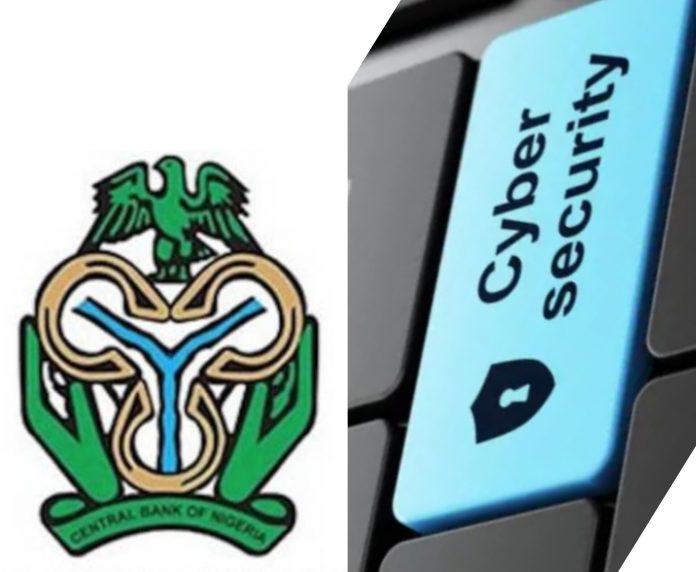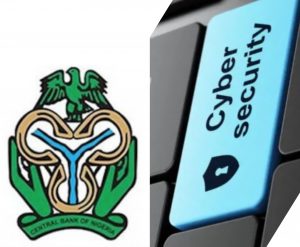CBN, Cybersecurity logos
By Tony Folarin
The Central Bank of Nigeria is aiming to generate about N50bn by the end of 2024 from the newly introduced 0.005 per cent cybersecurity levy on electronic transactions, according to economic analysts.
The Head of Research, FMDQ Group Plc, Vincent Nwani stated, “The CBN is expected to raise N50bn from the cybersecurity levy by 2024.”
The data from the Nigeria Inter-Bank Settlement System reveals that electronic payments reached a combined total of N987tn between 2022 and 2023.
Applying the 0.005 per cent levy to this total results in an estimated revenue of approximately N49.35bn.
He added that in 2022, electronic payments totalled N387tn, generating N19.35bn from the levy, while in 2023, with transactions soaring to N600tn, the revenue from the levy reached N30bn.
“For instance, we saw a remarkable 55 per cent surge in the total electronic payments, from N387tn in 2022 to N600tn in 2023 and the 2024 figure is projected at N999.9tn. At 0.005 per cent cyber security fees, the Nigerian government will earn N19.5bn for 2022, N30bn for 2023; 2024 will be equivalent to N50bn [projected figure] from its citizens,” he expounded.
Nwani also highlighted an increase in point-of-sale transactions, which surged by 27.85 per cent from N8.39tn in 2022 to N10.73tn in 2023, noting that PoS transactions cost Nigerians N214.6bn in 2023 due to the N100 fee on every N5,000 withdrawal.
“On the other hand, in 2023, the total value of PoS transactions surged to N10.73tn, up from N8.39tn in 2022, marking a notable 27.85 per cent increase. Additionally, a fee of N100 is charged for every N5,000 withdrawn via PoS, equating to two per cent of the withdrawal amount.
“POS transactions cost Nigerians a total of N214.6bn in 2023 and N167.8bn in 2022. This growing reliance on PoS and the associated charges reflect the broader economic effects of the cashless policy on the population,” the economist stated.
Also, the Vice Chairman of Highcap Securities, David Adonri, added, “The increase in electronic payments is driven by the CBN’s cashless policies and naira redesign. Despite the CBN’s contractionary monetary policy, the money supply continues to expand, which might push electronic payments even higher in 2024.
“With the projected rise in electronic payments to N999tn, the levy could indeed generate as much as N50bn for the government.”
The 0.005 per cent levy, enacted under the Cybercrime (Prohibition, Prevention, etc.) (Amendment) Act 2024, applies to all electronic transactions and is intended to fund the National Cybersecurity Fund managed by the Office of the National Security Adviser.
Despite initial resistance from President Bola Tinubu and the House of Representatives, who had called for a suspension and review of the policy, the CBN has restated its resolve to enforce the levy.


